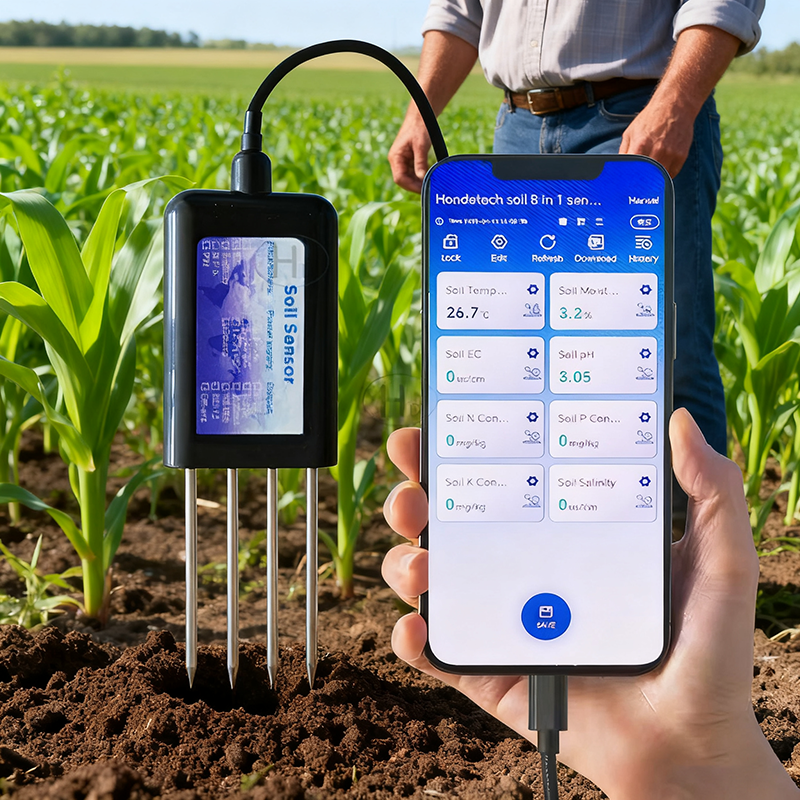When it comes to soil sensors, water conservation and increased production are almost the first benefits that come to everyone’s mind. However, the value that this “data gold mine” buried underground can bring is far more profound than you can imagine. It is quietly transforming the decision-making models, asset values and even risk profiles of agriculture.
From “experience-driven” to “data-driven” : A disruptive transformation in decision-making
Traditional agriculture relies on the experience and observations passed down from generation to generation. The continuous and objective data such as soil moisture, soil temperature and EC value provided by soil sensors transform management from a vague “feeling” to an accurate “science”. This environmental monitoring capability enables farmers to make decisions on irrigation and fertilization with confidence, significantly reducing the risk of losses caused by misjudgment. This is not merely an upgrade of tools, but also a revolution in thinking patterns.
2. Quantitative risk control to enhance the creditworthiness of agricultural assets and loans
For banks and insurance companies, agriculture used to be a hard-to-assess “black box”. Now, the historical data recorded by soil sensors has become verifiable management evidence. A data record demonstrating the continuous implementation of scientific water and fertilizer management can strongly prove the operational level and risk resistance capacity of a farm. As a result, when applying for agricultural loans or insurance, it may obtain more favorable rates, directly enhancing the value of the farm’s financial assets.
3. Labor Force Optimization: From “Busy Running Around” to “Efficient Management”
Large-scale farmers no longer need to drive hundreds of acres to “look at the land”. Through wireless transmission technology, soil sensors send data in real time to mobile phones or computers. This means that managers can precisely arrange irrigation and fertilization operations, liberating valuable human resources from repetitive field patrols and allowing them to be devoted to more important management, marketing and other tasks, thus maximizing the utilization of labor.
4. Protect the environment and brand reputation to achieve sustainable premium
Excessive fertilization leading to the loss of nitrogen and phosphorus is one of the main causes of non-point source pollution. Sensors precisely control water and fertilizer, greatly reducing nutrient loss from the source. This is an indispensable “self-verification” tool for producers who pursue green and sustainable agricultural brands. It not only helps farms pass strict environmental protection certifications, but also brings brand premium to agricultural products.
Conclusion
Obviously, the value chain of soil sensors has far exceeded the field. It is not only a data logger for precision agriculture but also the core entry point for the digitalization and intelligence of farms. Investing in soil sensors is not only about investing in current yields, but also in the farm’s future higher efficiency, stronger risk resistance and more sustainable brand value.
For more soil sensor information, please contact Honde Technology Co., LTD.
WhatsApp: +86-15210548582
Email: info@hondetech.com
Company website: www.hondetechco.com
Post time: Sep-28-2025


